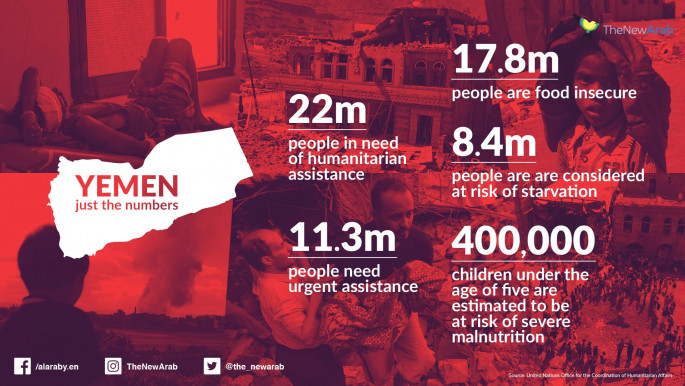Yemen's war 'eminently resolvable', UN says
The UN’s Yemen envoy said the deadly conflict in the war-torn country could still be stopped because warring sides still support a UN peace deal brokered in Stockholm last December.
Martin Griffiths said he believes “this war in Yemen is eminently resolvable,” in comments made to reporters in Geneva on Tuesday.
“Both parties continue to insist that they want a political solution and the military solution is not available. They remain committed to the Stockholm agreement in all its different aspects.”
However, Griffiths admitted the Stockholm agreement was taking some time to be implemented, though claimed both sides saw it as a gateway to opening up negotiations on a political solution.
Saudi Arabia and the UAE are both leading countries in a military coalition that was formed to fight Houthi rebels in Yemen and reinstate the internationally recognised government of Abedrabbo Mansour Hadi.
The controversial coalition has been blamed for more than half of Yemen’s death toll, which exacerbated when it intervened in March 2015.
The fighting has triggered what the United Nations describes as the world's worst humanitarian crisis, with millions of people displaced and in need of aid.
Earlier this month, Griffiths said he held "productive" talks with the Saudi deputy defence minister aimed at bolstering a ceasefire agreement for Yemen.
Read more: Comment: The UAE's 'withdrawal' from Yemen is merely an illusion
"We discussed how to keep Yemen out of the regional tensions, make progress in the implementation of the Stockholm agreement (and Saudi Arabia's) support to the peace process," Griffiths wrote on Twitter.
The meeting with Prince Khaled bin Salman came as representatives from Yemen's Saudi-backed government and Houthi rebels held talks on a UN vessel off the Yemeni coast to try to de-escalate tensions.
The hard-won truce agreement reached late last year in Sweden called on the Yemeni government and the Houthi rebels to pull forces out of the key port of Hodeida and parts of the city.
The pullback was supposed to have taken place two weeks after the ceasefire went into force on 18 December, but that deadline was missed.
In May, the UN announced the rebels had withdrawn from Hodeida and two other nearby ports, the first practical step on the ground since the ceasefire deal. But the government accused the militia of faking the pullout, saying it had merely handed control to allies.
On Monday, at the end of two days of talks - the first since February - a committee set up under the Sweden accord, also known as the Stockholm agreement, said it had agreed on "a mechanism and new measures to reinforce the ceasefire".
The mechanism would be put in place as soon as possible with support from the UN which is part of the committee along with representatives of the Yemeni government and Houthi rebels, a statement said.
The warring sides have fought to a stalemate, and several rounds of UN-sponsored talks, the last held in Sweden in December, have failed to implement any deal to end the war.
Since 2015, tens of thousands of people – mostly civilians – have been killed in the conflict described by the United Nations as the world's worst humanitarian crisis.
In recent weeks, Houthi rebels have stepped up attacks that have killed one civilian in the neighbouring kingdom.
Follow us on Twitter: @The_NewArab



